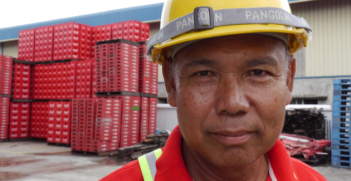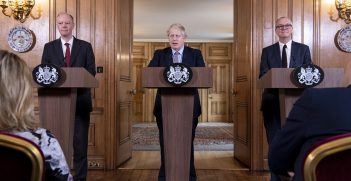The Contradictions of International Tax

Prompted by increased political populism globally and heinous financial revelations such as those in the Panama Papers, there is increasing pressure in Australia and elsewhere to crack down on international tax evasion. So, what steps are been taken? And what are the prospects of a secure tax collection regime that can cross borders?
The issue of international tax evasion was directly addressed in the 2016 Budget and it played a significant role in the recent Australian election campaign. Treasurer Scott Morrison said in his budget speech earlier this year, “Everyone has to pay their fair share of tax, especially large corporates and multinationals, on what they earn here in Australia. The Turnbull government has been listening to the Australian people on this issue and is taking action.”
He is not alone among treasurers in discussing tax evasion on a global scale. In the midst of uncertainty about other geopolitical issues including Brexit, China’s South China Sea excursions and Turkey’s coup, international tax diplomacy continues. Nationally and across borders, governments and international organisations are responding to public calls for action on tax avoidance by high-wealth individuals and multinational enterprises by enhancing cooperation.
In Australia, a high-profile senate inquiry into tax avoidance has called evidence from major companies as well as the Australian Taxation Office (ATO) and will report in September. Similar inquiries have been held in other countries including the US and France.
It’s partly in response to the extraordinary work of the International Consortium of Investigative Journalists, which has been driving debate with its explosive Lux Leaks expose in 2014 and the Panama Papers revelations that began in May. The information highlights the use of tax havens to hide assets and accounts of high wealth individuals. The Panama Papers continue to make waves as more data is released, most recently about the secret companies and assets of high-profile leaders and business people from African countries.
International cooperation
There are now significant efforts being made to address international tax avoidance at a multilateral level. The first Inclusive Framework meeting of the OECD-G20 and other interested countries on multinational tax avoidance wrapped up in Kyoto, Japan at the beginning of July. It was part of the OECD-G20 Base Erosion and Profit Shifting (BEPS) project which started in 2013 and for which Australia sought to lead the way during its G20 presidency in 2014.
The Inclusive Framework now includes more than 80 countries on an equal footing, seeking to work together to deal with corporate tax base erosion and profit shifting. Asian countries have been slow to get involved; the Kyoto meeting was the first to include countries such as Papua New Guinea, Pakistan, Bangladesh, Hong Kong and Singapore.
In another part of the OECD-G20 BEPS project, nearly 100 countries have signed the multilateral convention on tax administrative cooperation and committed to automatic tax data exchange. China has signed up and is seeking to lead in tax diplomacy. To that end, it hosted the 105th Forum on Tax Administration including 46 countries in Beijing in May 2016.
Australian initiatives
In keeping with these multilateral agreements, Australia has implemented country-by-country (CbC) reporting, effective 1 January 2016, which requires AU$1 billion multinationals to report their international group revenues, profits and taxes by jurisdiction. To date, 44 countries have signed a multilateral agreement to share CbC reports, implementing Action 13 of the BEPS Action Plan.
Australia is also one of the first countries to mandate public reporting of company tax. Earlier this year, this saw the Commissioner of Tax report total income, taxable income and tax paid for the 2014 tax year for listed companies with income of $100 million or more, resource companies and private companies with income of $200 million or more. The first report showed that nearly one third of Australian multinationals paid no tax in 2014.
In response, some large companies have published reports on taxes paid—such as Rio Tinto’s Tax Paid Report. All Australian resource operations will have to do this in future under the Extractive Industries Transparency Initiative which Australia joined in May 2016. By contrast some Asian companies—such as those of Hong Kong billionaire Li Ka-Shing, named in the Panama Papers—are under serious investigation for evading Australian tax.
Going it alone
In addition to cooperating with other countries, Australia is going it alone with new anti-abuse rules and will increase protection for tax whistleblowers in Australia—tacitly recognising the importance of the Panama Papers.
The Diverted Profits Tax proposed in the 2016 Budget is a hefty 40 per cent impost on “diverted profits”: the profits of large multinationals that have been shifted to an offshore company taxed at less than 80 per cent of Australia’s tax rate. The rule could capture profits diverted to Singapore (16 per cent), Hong Kong (17 per cent), Ireland (12.5 per cent) and even the United Kingdom which now has a tax rate of 20 per cent, heading down to 17 per cent by 2020. Business is not pleased, and the American Chamber of Commerce has criticised the proposed tax, arguing that it may “imperil” US investment into Australia.
Tax competition ramps up
As countries build cooperation to address multinational tax avoidance, tax competition continues and company tax rates are still trending down. The Turnbull Government has proposed the Ten Year Enterprise Tax Plan to lower the company tax rate from 30 per cent to 25 per cent by 2026. The tax cut aims to encourage “investment, raise productivity, increase GDP and over time raise real wages and living standards”.
Australia’s two biggest sources of foreign investment, the UK and US, seem to be on opposite tracks. The UK will drop its company tax rate to 17 per cent by 2020 and may go even lower. The US rate is at 35 per cent, one of the highest in the world. Yet, this rate is avoided by many US domestic businesses and US multinationals, which now have more than US$2 trillion in tax havens not paying US tax. At the same time, most Asian countries now have company tax rates lower than 25 per cent.
Australia and other countries will continue with a source-based company tax on net profits for the foreseeable future. Like many other countries, Australia is a net capital importer. A company tax rate cut is not an economic growth saviour. But the difficult question for Australian policymakers is not “Should we cut the rate?”; rather, in a global economy, the question is, “Can Australia really take a different path to the rest of the world—and for how long?”
Miranda Stewart is the director of the Tax and Transfer Policy Institute and a professor at the Crawford School, at the Australian National University. She is also the editor of the blog Austaxpolicy.com. She researches and writes on a wide range of Australian and international tax policy issues. This article is published under a Creative Commons Licence and may be republished with attribution.





